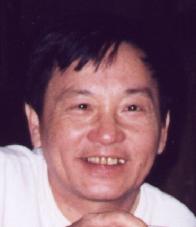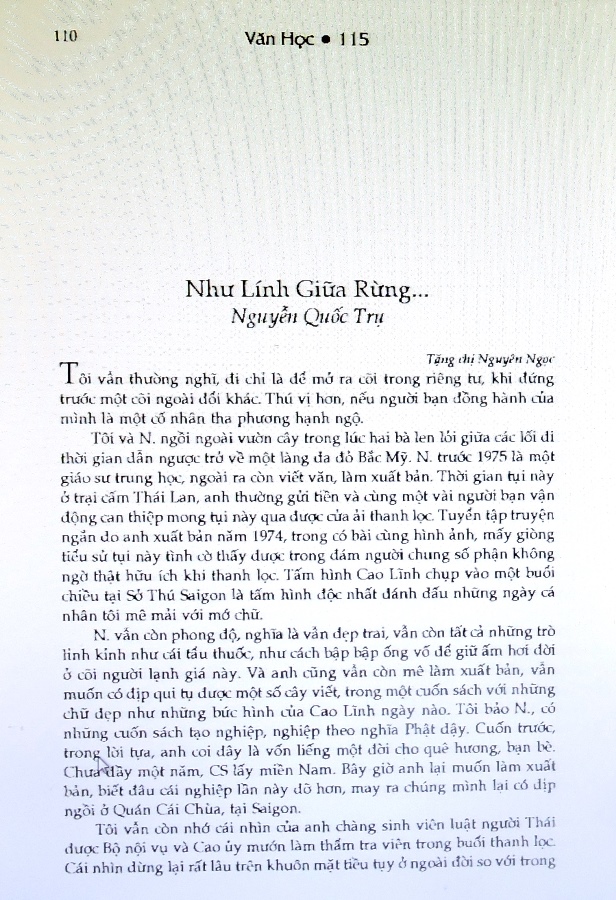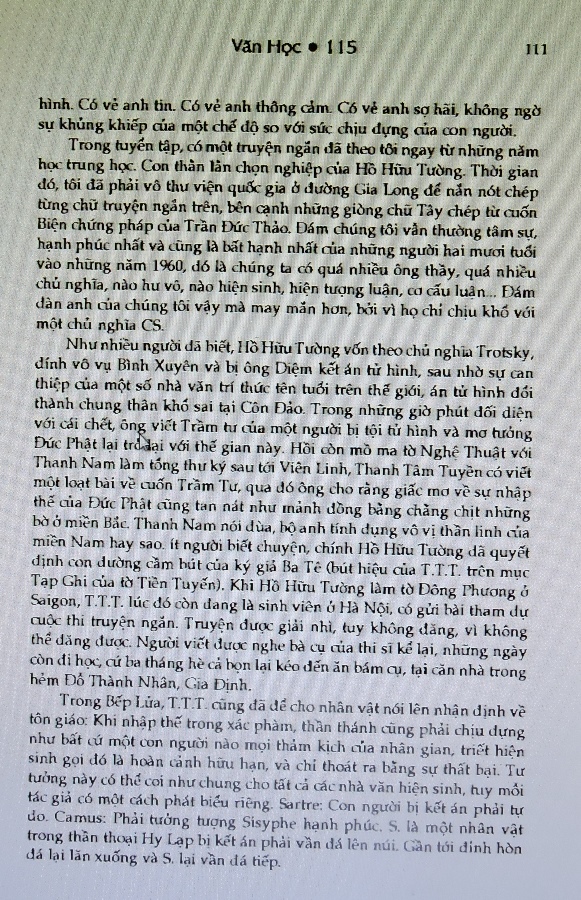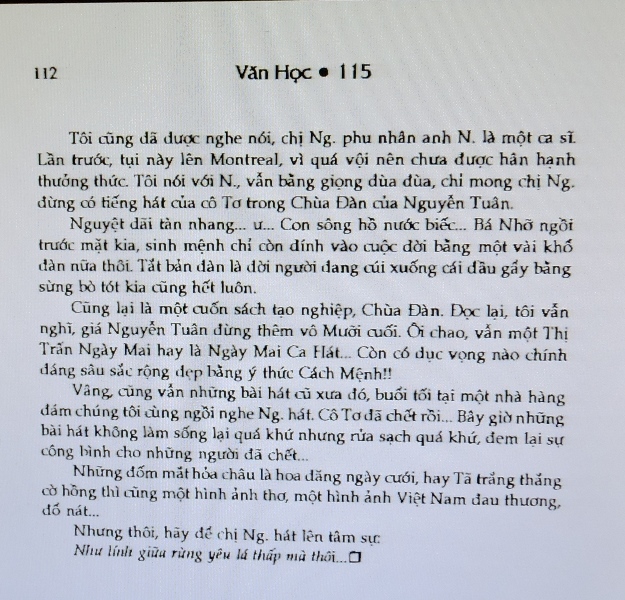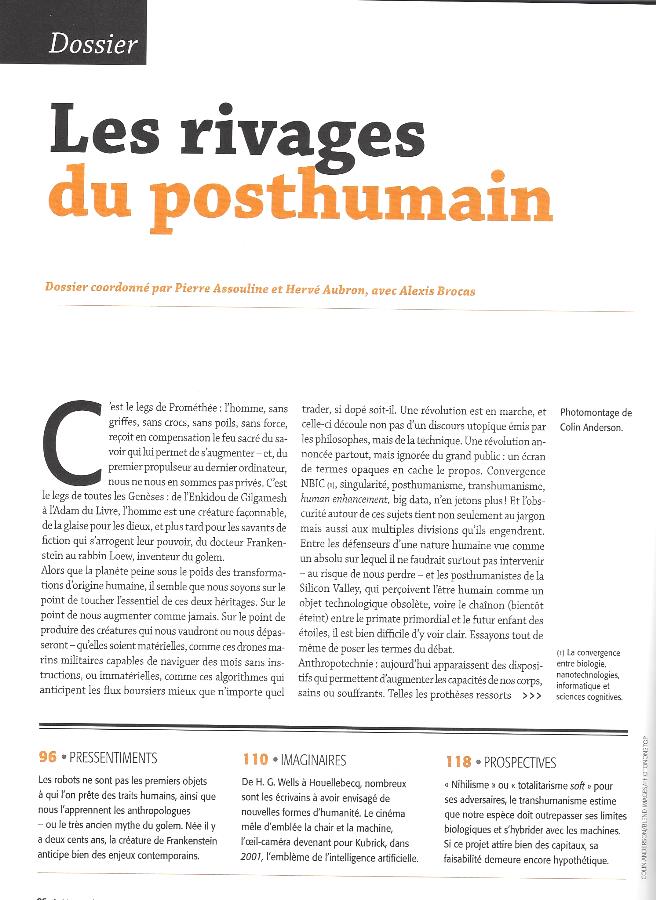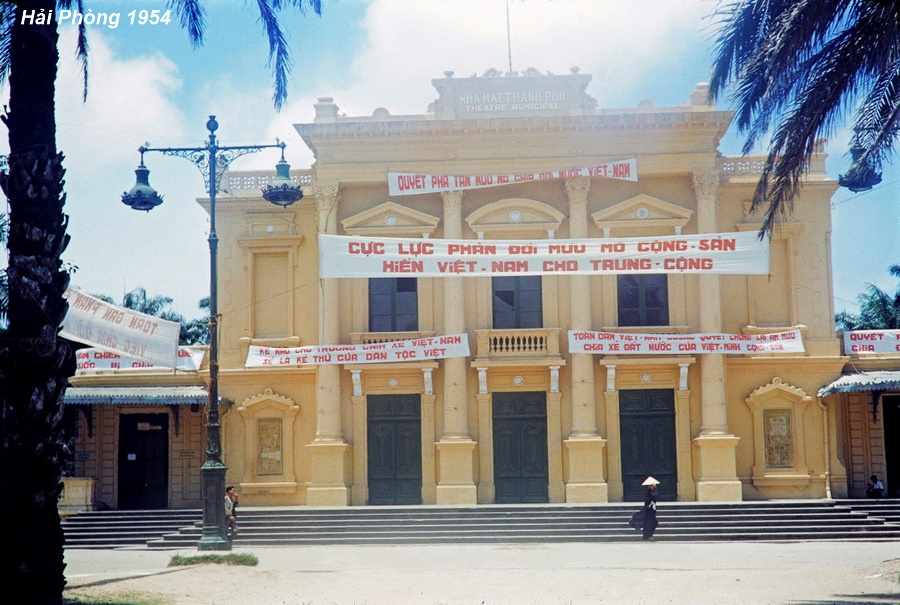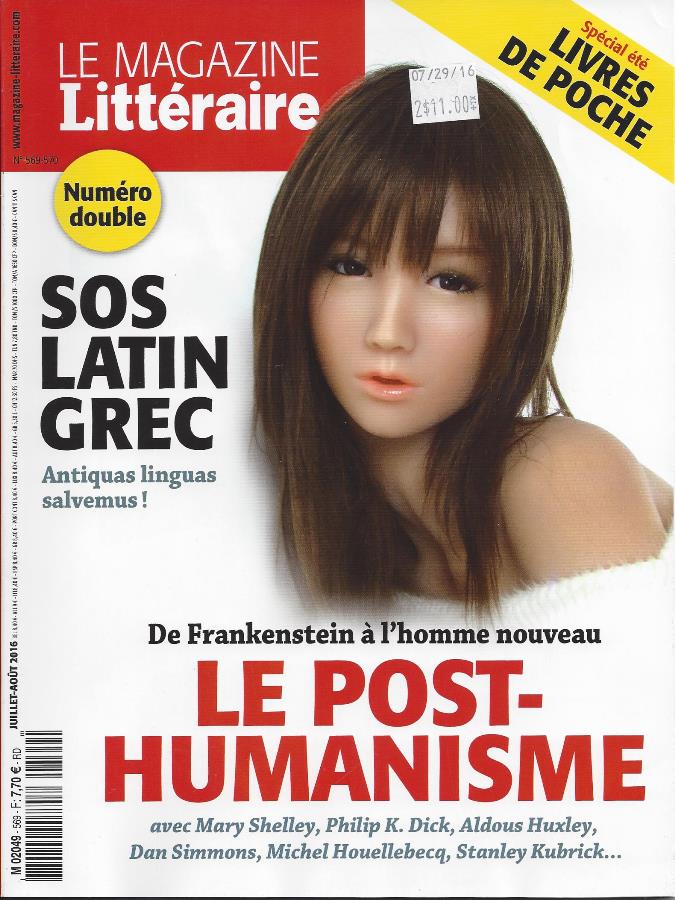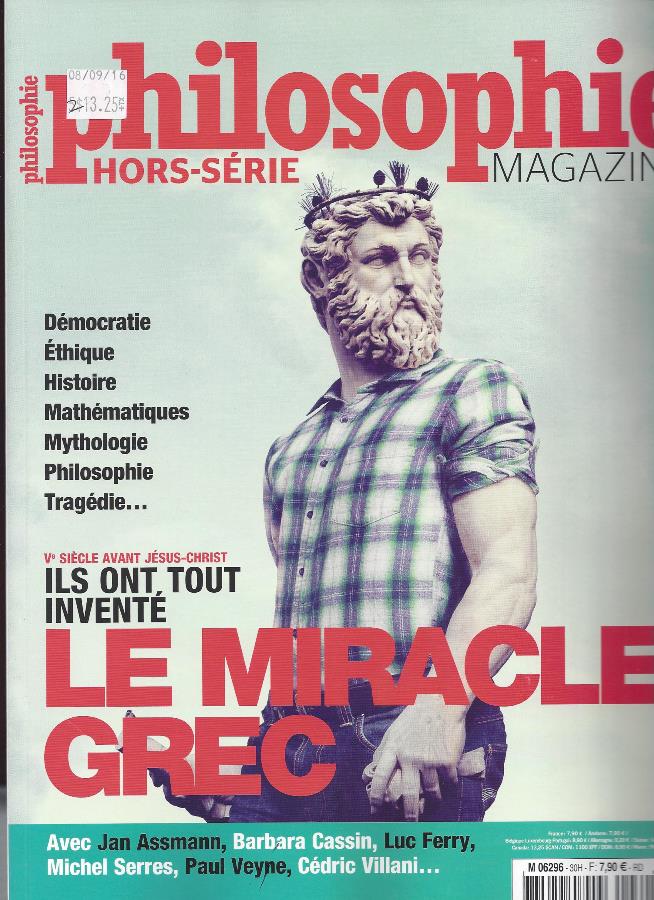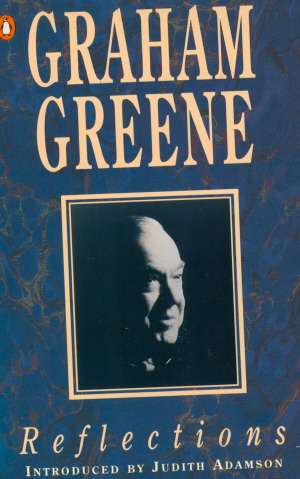Nguyễn Quốc Trụ
Sinh 16 tháng Tám,
1937
Kinh
Môn,
Hải
Dương
[Bắc
Việt]
Quê
Sơn
Tây
[Bắc
Việt]
Vào
Nam
1954
Học
Nguyễn
Trãi
[Hà-nội]
Chu Văn An,
Văn Khoa
[Sài-gòn]
Trước
1975
công
chức
Bưu
Điện
[Sài-gòn]
Tái
định
cư năm
1994
Canada
Đã
xuất
bản
Những
ngày
ở Sài-gòn
Tập
Truyện
[1970,
Sài
Gòn,
nhà
xb Đêm
Trắng
Huỳnh
Phan
Anh
chủ
trương]
Lần
cuối,
Sài-gòn
Thơ,
Truyện,
Tạp
luận
[Văn
Mới,
Cali.
1998]
Nơi
Người
Chết
Mỉm Cười
Tạp
Ghi
[Văn
Mới,
1999]
Nơi
dòng
sông
chảy
về phiá
Nam
[Sài
Gòn
Nhỏ,
Cali,
2004]
Viết
chung
với
Thảo
Trần
Chân
Dung
Văn Học
[Văn
Mới,
2005]
Trang Tin Văn, front page, khi quá đầy,
được
chuyển
qua Nhật
Ký
Tin Văn,
và
chuyển
về
những
bài
viết
liên
quan.
*
Một
khi
kiếm,
không
thấy trên
Nhật
Ký,
index:
Kiếm
theo
trang
có
đánh
số.
Theo
bài
viết.
Theo
từng
mục,
ở đầu trang
Tin
Văn.
Email
Nhìn
lại
những
trang
Tin
Văn
cũ
1
2
3
4
5
Bản quyền Tin Văn
*
Tất
cả bài
vở
trên
Tin Văn,
ngoại
trừ
những
bài
có
tính
giới
thiệu,
chỉ
để sử dụng
cho cá
nhân
[for personal
use], xài
thoải
mái
[free]
Liu
Xiaobo
Elegies
Nobel
văn
chương
2012
Anh
Môn
Kỷ niệm 100 năm sinh của Milosz
IN MEMORIAM
W. G. SEBALD
http://tapchivanhoc.org
|
2 Years Ago
See Your Memories
Duyên Nợ Văn Chương
Vào
năm 1836, vài tháng trước khi Pushkin mất vì cuộc đấu
súng, tờ báo Telescope của Nga đăng bức thư thứ nhất trong
tập thư có tên là Thư ...
See More
En
attendant
SN
Bài
viết đầu tiên cho tờ Văn Học, 1995, khi đó chưa giữ mục Tạp
Ghi.
NN là bà xã Nguyễn Đông Ngạc
Tôi
vẫn còn nhớ cái nhìn của anh sinh viên Luật,
người Thái Lan, được Bộ Nội Vụ và Cao Uỷ Tỵ Nạn mướn làm
thẩm tra viên trong buổi thanh lọc.
Cái nhìn dừng lại rất lâu trên
khuôn mặt tiều tuỵ ở ngoài đời so với trong hình.
Có vẻ anh tin. Có vẻ anh thông cảm. Có vẻ anh
sợ hãi, không ngờ sự khủng khiếp của một chế độ so với sức
chịu đựng của con người.
Hồi còn mồ ma tờ
Nghệ Thuật, Thanh Tâm Tuyền có viết một loạt bài về
cuốn Trầm Tư, qua đó ông cho rằng giấc mơ về sự nhập thế của
Đức Phật cũng nát tan như mảnh đồng bằng chằng chịt những bờ của
Miền Bắc.
Thơ
Mỗi
Ngày
TTT 10 years Tribute
Ba trăm năm sau có
ai khóc Tố Như ?
-Anh coi
thường em quá. Oanh ngăn xúc động dịu dàng nói.
-Rồi em sẽ hiểu, nên để người ta coi thường mình. Kiệt trở
giọng...
See More
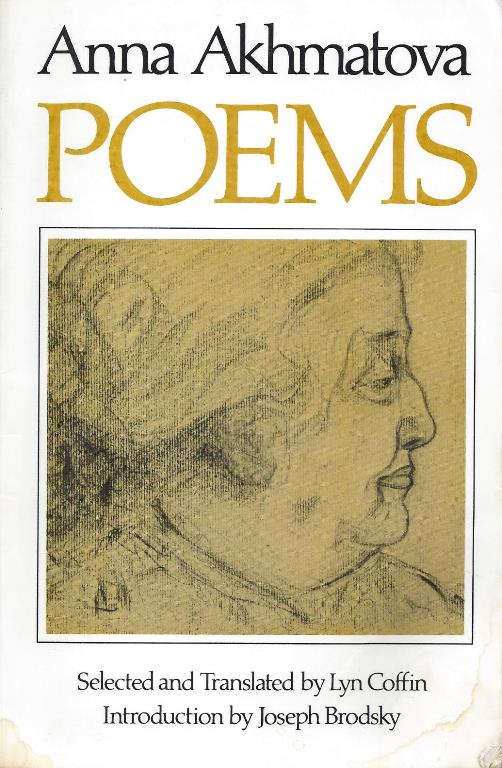
TO THE MEMORY OF A POET
Like a bird, echo will answer me.
B.P. (Boris Pasternak)
1.
That singular voice has stopped: silence is complete,
And the one who spoke with forests has left us behind.
He turned himself into a life-giving stalk of wheat
Or the fine rain his songs can call to mind.
And all the flowers that hold this world in debt
Have come into bloom, come forward to meet this
death.
But everything stood still on the planet
Which bears the unassuming name. . . the Earth.
2.
Like the daughter of Oedipus the blind,
Toward death the Muse was leading the seer.
And one linden tree, out of its mind,
Was blooming that mournful May, near
The window where he told me one time
That before him rose a golden hill,
With a winged road that he would climb,
Protected by the highest will.
1960
11 juin [1960]. De l'hôpital
Botkine, Anna Akhmatova écrit à la mémoire de
Pasternak:
Oedipe aveuglé guidé
par sa fille,
La muse l'a conduit jusqu'à sa mort.
Un tilleul fou, auprès de ma fenêtre
A fleuri seul en ce mai de douleur,
Juste à l'endroit où il m’avait confié
Qu'il voyait serpenter devant ses yeux
Un sentier d'or aux ailes déployées
Où le gardait la volonté des cieux
Traduction Michel Aucouturier,
Revue des Belles-Lettres,
mars 1996.
Source: Pasternak,
éd Quarto Gallimard [NQT]
Oedipe mù, được cô
con gái dẫn dắt
Nữ thần thi ca đưa anh tới cái chết của mình
Một bông hoa đoan, khùng, độc nhất,
Nở, vào đúng Tháng Năm đau buồn đó
Ở gần cửa sổ
Nơi ông đã có lần tâm sự cùng
tôi
Ông nhìn thấy dựng lên một cảnh đồi vàng
Cùng con đường dốc có cánh
Và ông trèo lên
Được bảo vệ bởi Thánh Ý.
Boris Pasternak: 1890-1960, renowned Russian poet and novelist.
BORIS PASTERNAK
He who compared himself to the eye of a horse,
Glances, looks, sees, recognizes,
And puddles shine like molten diamonds, of course,
And any ice is lost in surmises.
In the purple mist, unvisited streets unwind,
A station, logs, leaves, doves.
Train whistles, the crunch of watermelon rind,
Shy hands in perfumed suede gloves.
Rumbles, clangs, screeches, reach high tide
And die. This means he's coming: he carefully places
Each foot on pine needles, tries as he's always tried
Not to frighten the light sleep of empty spaces.
This means he's counting grains, keeping a tab
On empty ears of wheat, that he came back,
Again, from someone's funeral to the slab
In the Daryal wilds, which is also accursed and black.
Languor again burns the Moscovian loam,
In the distance, deadly bells jingle. Do you know
Who's gotten lost not even a stone's throw from home,
Where everything ends and you're up to your waist in
snow?
Because he compared smoke to the Laocoon,
And celebrated thistles in graveyard places,
Because he filled worlds with new ringing and so on
In reflected stanzas original spaces-
He's been rewarded with a kind of eternal childhood,
His keen sight and generosity shine like the sun,
The earth was his inheritance, plain and wildwood,
And he shared it with everyone.
1936
VORONEZH
(To Osip Mandelstam)
The city is caught in the grip of ice-
Trees, walls, snow, are as under glass.
Over crystals, I and the patterned sleighs
Go our separate, unsteady ways.
And above St. Peter's steeple---crows,
And poplars-a light-green vault that glows-
Blurred, lackluster, in the sunny dust.
The triumphant landscape blows into thought
This is where Kulikovo was fought.
And the poplars like wineglasses raised in a toast
Suddenly ring out more clearly above us.
As though at a wedding the assembled host
Were drinking our union to show how they love us.
But Fear and the Muse in turn guard the place
Where the banished poet has gone.
And the night that comes with quickened pace
Is ignorant of dawn.
Đọc & Viết
The Schooldays
of Jesus. By J.M. Coetzee. Harvill Secker; 260 pages; £17.99.
To be published in America by Viking in February 2017; $27.
Những ngày đi học
của Chúa Kitô: Bông hoa nở muộn của 1 thiên
tài già hai lần Booker, một lần Nobel.
Hai lần Booker? Biết đâu, ba?
Nhờ Coetzee, Gấu biết tới Walter Benjamin, qua bài
viết của ông trên tờ NYRB, Tin Văn đã từng dịch,
“Những Kỳ Tích của WB”. Chính là nhờ những người
như ông, vừa viết giả tưởng vừa viết phê bình, Gấu
ngộ ra, phê bình chính là 1 dạng giả tưởng
cực cao, chính nó, ở vào những bước ngoặt của lịch
sử, đổi hẳn dòng chảy của văn học. Câu phán khủng
khiếp của WB, lịch sử phải viết từ đáy, thay vì từ đỉnh,
làm đổi hẳn cách trao giải thưởng Nobel, với những tác
giả được giải sau đó, như Cao Hành Kiện, Kertesz, Jelinek….
JUDGING the Man Booker prize, the world’s best-known
annual award for fiction in English, involves reading a novel a
day—every day—for more than six months. The initial distillation of
this compulsive word-brew is the longlist, 13 books which are known
collectively as the Man Booker dozen and are the first indication
of what the judging panel is thinking. A crowd of famous authors failed
to make the cut this year, from Edna O’Brien to Don DeLillo. Instead,
the longlist, announced on July 27th, included three tiny independent
publishers and four first novels (all virtually unknown). One was written
in a VW camper van, a sign perhaps that the judges were looking for authors
and editors who live outside the mainstream.
So it came as something of a surprise that the list also
included an old, if not elderly, hand, J.M. Coetzee. A Nobel laureate
who has twice won the Man Booker (in 1983 for “The Life & Times
of Michael K” and again in 1999 for “Disgrace”) and been longlisted
three times more, Mr Coetzee is almost two decades older than any of his
colleagues on the list. At an age when most people have retired to an
armchair, he finds himself not so much making a late dash as accelerating
on to a whole new literary motorway.
In 2009, when he was about to be 70, Mr Coetzee wrote
two letters to Paul Auster, a New York novelist, outlining his ideas
about “late style”. He saw the artist’s life as having two, perhaps
three stages. “In the first you find, or pose for yourself, a great question.
In the second you labour away at answering it. And then, if you live long
enough, you come to a third stage, when the aforesaid great question begins
to bore you, and you need to look elsewhere.” By then, as an Irish literary
critic, Fintan O’Toole, pointed out, Mr Coetzee had turned his back
on his “great question”, man’s capacity for cruelty and the future of
his native South Africa, the setting for his two Man Booker winners.
He had also just finished “Summertime”, an autobiographical novel that
appeared to free him to make a fresh literary start.
The result, “The Childhood of Jesus”, Mr O’Toole wrote
in the New York Review of Books, was “not so much a late work as
a posthumous publication…a writer’s afterlife, Coetzee after Coetzee.”
The main character, Simón, explains to Davíd, the small
boy he has taken under his wing: “After death there is always another
life…We human beings are fortunate in that respect.” The novel ends
with the family on the run.
Readers, including Joyce Carol Oates who has a lifetime
of difficult reading behind her, were gripped by the vestigial Bible
tale and captivated by the spare writing style, even as they were
bemused at the lack of conventional narrative landmarks and the fact
that this so-called allegory turned out to be nothing of the kind.
Mr Coetzee’s new book aims to take the story on. “The Schooldays of
Jesus” is not out until later this month, so the Man Booker judges are
among the few who have read it. What was it that so impressed them?
Davíd and his parents have taken refuge in another
town. In need of employment, they are taken in on a farm and work
as common labourers. The boy is naturally clever—and wilful—with ideas
of his own. “He believes he has powers,” his father tells a friend.
“As you can imagine, it is not easy to teach him.” The owners of the
farm, three sisters, offer to pay for his education. Having failed to thrive
in an ordinary school, the boy is sent to the Academy of Dance, which is
devoted to “the training of the soul through music”.
Loose biblical associations are threaded throughout:
a census is about to be held, the family meets many sinners, listens
to parables and discusses sin, guilt, redemption and how miscreants
should be treated. But the central issue of this novel and its predecessor
is one that philosophers have pondered for centuries: what makes us
human, and is there more to life than existence on this planet? People
have feet of clay, but even the most earthbound can be transported
by music, passion, poetry and the possibility of a next life—if only
they find the key. Freed from literary convention, Mr Coetzee writes
not to provide answers, but to ask great questions.
Will he become the first writer to win the Man Booker
prize three times? Perhaps not this year. But that may not trouble
him. Mr Coetzee is a writer; writing is what he does best. He is still
having fun doing it and, at 76, he may not ask for more.
“Những ngày đi học của Christ”, như Mr O’Toole điểm, trên
NYRB, thì không hẳn là 1 tác phẩm muộn, 1 di
cảo…. đúng hơn, nó là cuộc đời sau của một nhà
văn, Coetzee sau Coetzee.
Nhân vật chính Simon giải thích cho chú
bé Sam, “sau cái chết luôn luôn có 1
đời khác, Chúng ta, con người may mắn ở chỗ đó.”
May mắn?
Số
báo văn học mới nhất của Tẩy, cũng là về đề tài này,
về “cái gọi là” sau đời, post-human, thêm đời, l’homme
augmenté, xuyên đời, transhumanisme, và 1 bài
viết trong số báo, coi, đây là 1 hiện tượng hư vô,
nihilism, nếu chỉ nhắm vào khía cạnh thách đố sinh
học, kéo dài tuổi thọ bằng cách thay thế tim gan phèo
phổi…
Cioran cũng đã từng đặt ra vấn nạn này, và
ông coi là vô nhân, vô đạo đức. "Hư vô,
toàn trị mềm"... xuyên nhân bản hy vọng con
người vượt qua mức trăm năm trong cõi người ta, vượt quá
giới hạn sinh học, để sống hài hòa, s'ybrider, với máy
móc.
Đi tìm phê bình
gia Mít
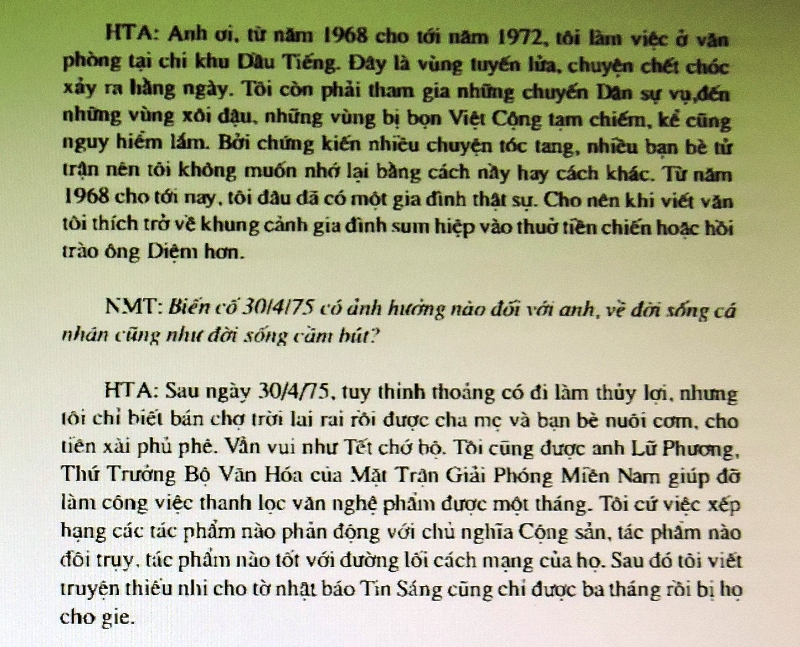
Cái tên đệ tử Lữ Phương,
là kẻ chịu ơn TTT và GCC. Thay vì biết ơn, hắn đưa
cả hai vô danh sách 12 nhà văn phản động, đồi trụy.
Không chỉ thế. Ra hải ngoại, sớm sủa, trở thành 1 nhà
văn nổi tiếng, hắn viết sách, trong đó chửi GCC, không
biết bao nhiêu lần, không làm sao nhớ nổi, cái
“gì gì” trong cõi ký ức trong xanh.
Tại sao hắn lại làm như thế?
Tên Lang Băm, GCC đâu biết là thằng củ xê
nào [từ này Duyên Anh & Thương Sinh ban cho GCC],
vậy mà cũng chửi, giọng đầy hằn học.
Đây là vấn đề liên quan đến đạo hạnh, đẳng
cấp, sống sót, đúng như Milosz phán, khi viết về
Brodsky, như Brodsky, khi viết về Mandelstam.
Bản thân những tên này, chúng tự biết,
chúng không thể viết được cái thứ mà chúng
mong viết được.
Mỹ là mẹ của đạo hạnh, là như thế.
TTT, trong Thơ Ở Đâu Xa, 1 bi khúc, như NL
gọi, tặng thơ rất nhiều người, những bạn tù của ông, những
kẻ đồng hội, đồng thuyền, như ông gọi. Khi về đời, một số trong lũ
này, thay vì cảm thấy thật là tuyệt vời, vì
đã từng được là bạn tù của ông, không
chỉ thế, mà còn được ông tặng thơ, thì lại rất
ư là tức giận, khi thấy ông không uống cà phê
nhớ bạn hiền với chúng!
Thế là trở mặt!
Đạo hạnh như kít làm sao làm thơ hay cho
được!
Sách
&
Báo
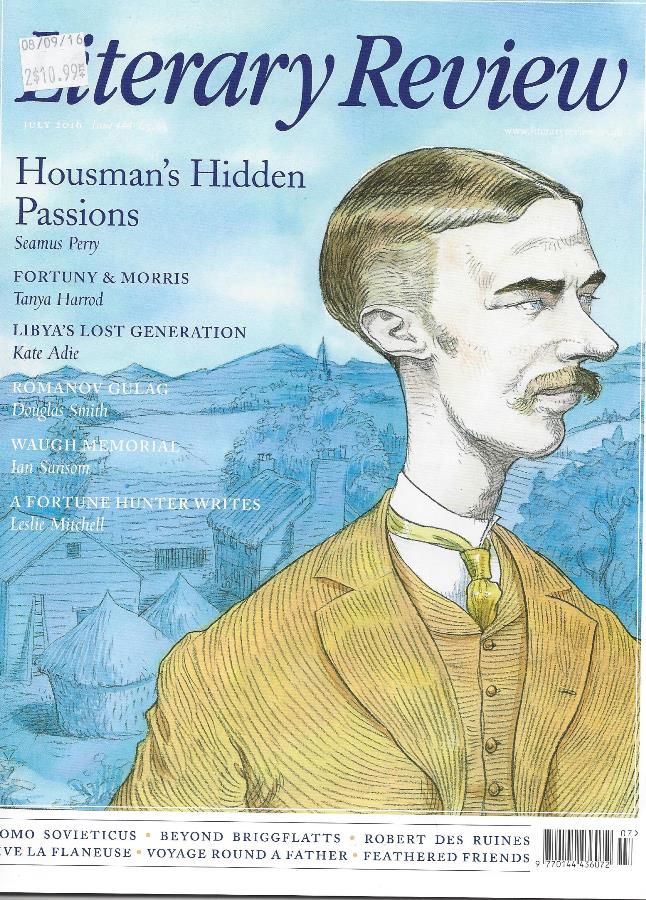
https://literaryreview.co.uk/
T ờ Điểm Sách này
của Ăng Lê, khác nhiều lắm, so với Mẽo, hoặc Tẩy.
Mắc hơn nữa!
Anna Reid
‘Things only ever got worse’
Second-Hand Time: The Last of Soviets
By Svetlana Alexievich (Translated by Bela Shayevich)
Fitzcarraldo Editions 695pp £14.99 order from our bookshop
Literary Review - Britain's best-loved Literary Magazine
Until recently, Svetlana Alexievich was little known outside the world
of Russian studies. That changed last October, when she was awarded the
Nobel Prize in Literature, becoming the first ever Belarussian and the first
non-fiction writer since Winston Churchill to receive it. Since the start
of her publishing career in the mid 1980s, her theme has been the tragic
past of the former Soviet Union, as recounted by multiple individuals in
their own voices. Hundreds of subjects are interviewed at length, some repeatedly
and over many years. The resulting transcripts are edited down to anything
from a one-line snippet to a chapter-length monologue and presented to the
reader with minimal biographical information and little or no authorial
comment.
Best known abroad of Alexievich’s books is Zinky Boys, the title taken
from the zinc coffins in which Soviet soldiers killed in the Soviet–Afghan
War were transported home. Most recent is Voices from Chernobyl, which
gathers together first-hand accounts of the nuclear disaster. Ten years
in the making, Second-Hand Time is her longest and most ambitious work
to date. Her subject, she explains, is the Homo sovieticus or, pejoratively
‘sovok’, meaning someone ineradicably formed by the Soviet Union. ‘People
who have come out of socialism’, she writes, ‘are both like and unlike
the rest of humanity – we have our own lexicon, our own conceptions of good
and evil, our heroes and martyrs. We have a special relationship with death.’
RUSSIA
& CRIMEA
32 Douglas Smith
The House of the Dead· Siberian Exile
under the Tsars
Daniel Beer
33 Anna Reid
Second-Hand Time: The Last of the Soviets
Svetlana Alexievich
35 Donald Rayfield
Crimea: A History Neil Kent·
The Crimean Tatars: From
Soviet Genocide to Putin's Conquest Brian Glyn Williams
Bài điểm cuốn Second-Hand Time, tuyệt. GCC
mua số báo vì bài điểm này.
Trong khi chờ đợi, độc giả TV đọc đỡ bài trên
báo Mẽo
Book Review | Nonfiction
‘Secondhand Time,’ by Svetlana Alexievich
By ADAM HOCHSCHILDMAY 27, 2016
http://www.nytimes.com/2016/05/29/books/review/secondhand-time-by-svetlana-alexievich.html?_r=0
Số này còn có bài điểm cuốn
thứ nhì, sau cuốn Kẻ Phản Thùng của anh Mít
Mẽo được Pulitzer: Chẳng có gì chết đi, Nothing Ever
Dies.
Người điểm là Jonathan Mirsky.
A Right Way to Remember?
Nothing Ever Dies: Vietnam and the memory of War
Cách đọc, của ông, cũng cách viết về
cuộc chiến Mít, của Viet Thanh Nguyen, theo GCC, lỗi thời
rồi.
Trong bài điểm cuốn sách của Bà Nobel, có 1 câu
thật tuyệt, cho thấy cái lỗi thời của cả hai:
Chỉ 1 tên Xô Viết mới hiểu được 1 tên
Xô Viết khác.
Only a Soviet person can understand another Soviet person
Phải 1 tên Bắc Kít thì mới hiểu 1 tên
Bắc Kít khác!
Cách đúng để nhớ?
Theo Mirsky, VTN có ba cách, Nguyen actually
perceives three kinds of memory of the war.
Vẫn thiếu 1 cách.
Đúng
hơn, thiếu
yếu tố Tẫu.
Ông chủ không biết trong nhà của mình
có gì, cô tớ gái trong Y sĩ đồng quê
của Kafka, phán.
Thiếu con quỉ nơi chuồng heo.
Khi Hồ tới Moscow, đúng thời gian Xì thanh
trừng đám cựu trào.
"Cái gì" khiến Xì tha mạng Hồ?
Xì tha Hồ, vì đã giao tính mạng
Hồ, và số phận xứ Mít, cho.... con quỉ nơi chuồng heo!
Đám Mít, con cái
Ngụy, lớn lên ở Mẽo, do cũng thuộc nhóm thiểu số, bị khinh
khi, ngay từ khi còn nhỏ, khi còn đi học, phải vượt qua được cái mặc
cảm/bất hạnh này, thì mới viết lách được, theo
GCC.
SECONDHAND TIME
The Last of the Soviets
Thời gian xài rồi xài lại:
Kẻ Cuối Cùng của những tên Xô Viết
[Tạm dịch cái tít]
By Svetlana Alexievich
Translated by Bela Shayevich
470 pp. Random House. $30.
Svetlana Alexievich has said that when she assembles one
of her remarkable collections of oral histories she is constructing
a “novel in voices.” In this latest book, one voice is of a woman who
seems to have stepped out of a tale by Chekhov. With three children, she
is married to a good man who loves her. But then, on the strength of a photograph,
she decides that someone else is the man she really loves — whom she once
saw in a dream. He, however, is in prison, serving a life sentence for
murder.
To top it off, his prison is a converted monastery, with
walls five feet thick, on an island in an isolated northern lake.
She divorces her husband, abandons her children, marries the prisoner,
whom she is seldom allowed to see, and finds a low-paying job nearby.
Then they quarrel and she disappears.
But recent history has added a twist Chekhov could not
have imagined. This prisoner committed his murder in what was then
still the Soviet Union. If he is ever released, it will be into a
radically different Russia, where, as one of Alexievich’s interview
subjects says, “the discovery of money hit us like an atom bomb.” It
is the contrast between these two countries — as felt by people living
in the second but remembering the first — that is the subject of “Secondhand
Time,” her first book to appear in English since she won the Nobel Prize
in Literature last year. (It appeared in Russia in 2013.)
As in many a Chekhov story, few of the people she records
are happy. “There is something in the Russian spirit,” she said in
her Nobel lecture, “that compels it to try to turn . . . dreams into
reality.” This was true of the woman who loved the prisoner, and it
was also true of the Russian people as a whole, who lived, for some
70 years, in a society ostensibly based on a dream of human brotherhood
that turned out to be something catastrophically different.
Among believers in the dream of Soviet Communism, Alexievich
finds a nostalgia for its achievements and a deep sense of loss.
Quite poignantly, she zeros in from several angles (press reports,
official documents, an interview with someone who knew him) on Marshal
Sergey Akhromeyev, who was said to be a supporter of the 1991 coup attempt
against Mikhail Gorbachev, and who hanged himself in his Kremlin office
when it failed. “I cannot go on living,” he wrote, “while my Fatherland
is dying and everything I heretofore considered to be the meaning of
my life is being destroyed.” In a final humiliation, symbolic of the
crass market society replacing Akhromeyev’s beloved Communism, his grave
was robbed and his uniform, cap and medals — all of which now fetch high
prices from antique dealers — were taken.
Alexievich also describes another military suicide. Anyone
who spent time in the old Soviet Union will remember the immense
honors lavished upon World War II veterans. One, Timeryan Zinatov,
won a medal for his role in defending the famous fortress at Brest,
and then fought through the rest of the war. A construction worker in
Siberia, he returned to the fortress, the scene of his moment of glory,
every year. In 1992, shocked by the new Russia, where brand name fashion
accessories mean more than war medals, he came back one last time to Brest,
which by then was in a different country, Belarus. Then he threw himself
under a train, leaving a message asking to be buried in the fortress.
Continue reading the main story
It’s more surprising that Alexievich finds similar true
believers among those who suffered the very worst Soviet fury. A onetime
factory director, for instance, had been arrested during Stalin’s
Great Purge of the late 1930s, beaten, tortured, hung “from hooks like
it was the Middle Ages!” After the interrogator is done with you, he
says, “you’re nothing but a piece of meat . . . lying in a pool of urine.”
Luckier than millions, he was released after a year: “It had been a mistake.”
In the army in World War II, he ran into his former interrogator,
who now said to him, “We share a Motherland.” The Soviet dream, as
much about patriotism for the Motherland as about utopia, offered a
universe of certainties despite “mistakes,” even to those who were
its victims. For this factory director, in his retirement, tells Alexievich
that he feels “surrounded by strangers” in the new Russia. “When I go
into my grandchildren’s room, everything in there is foreign: the shirts,
the jeans, the books, the music. . . . Their shelves are lined with empty
cans of Coke and Pepsi. Savages!” He finishes: “I want to die a Communist.
That’s my final wish.”
Despite their oppressive “mistakes,” empires of all kinds
keep a lid on things, and one of the tragedies of the post-Soviet world
— as it was of post-British India and of the post-Tito former Yugoslavia
— is the upwelling of long-contained ethnic and religious strife.
Among those whose voices Alexievich brings us is an Armenian
woman married to an Azerbaijani. In Soviet times, they lived in
Azerbaijan’s capital, Baku, “my favorite city . . . in spite of everything!
. . . I don’t remember any discussion of . . . nationalities. The world
was divided up differently: Is someone a good or bad person, are they
greedy or kind?” To welcome spring, everyone in her apartment building
— Armenians, Azerbaijanis, Georgians, Russians, Ukrainians — would
share food around a long table in the courtyard. Then, as the Soviet
Union collapsed, demagogues everywhere whipped up tensions. The bodies
of murdered Armenians appeared on the streets. Azerbaijanis attacked
her husband, beating him with iron rods, for being married to an “enemy.”
She asked her mother, “Mama, did you notice that the boys in the courtyard
have stopped playing war and started playing killing Armenians?” When
she fled for her life to Moscow, her husband’s family refused to pass
on her phone messages to him — and claimed to her that he had remarried.
Years later, he finally made it to Moscow too, where they now live, illegally
and traumatized.
I have a few minor quibbles with the way Alexievich weaves
her rich tapestry of voices. Although the interviews are grouped
by decades (1991-2001, 2002-12), she does not tell us whether she
talked to someone in 1991, when the enfeebled Soviet Union was still
alive, or in 2001, when it was 10 years dead. She uses many ellipses
in each paragraph, which show how a monologue has been edited but give
it a slightly spacey and disjointed feel. And unlike her distinguished
American counterpart Studs Terkel, who sometimes set the scene in a headnote
to an interview, she gives us little or no background on her subjects,
usually just something as cryptic as “Olga V., surveyor, 24.” And when
she does provide a rare headnote, her own editorial voice can intrude:
“Sometimes I think that pain is a bridge between people, a secret connection;
other times, it seems like an abyss.” There is no need for this: She
has successfully bridged the abyss.
Hậu
Nhân Bản Chủ Nghĩa: SOS Latin Grec
Hai số báo trên, cùng
1 đề tài: Phép Lạ Hy Lạp
http://www.magazine-litteraire.com/critique/greene-la-gr%C3%A2ce-intranquille-0
Greene, la grâce intranquille
Par Pierre Assouline dans Magazine
Littéraire 569
daté juillet-août 2016 - 1375 mots
Converti au catholicisme, le Britannique
conjuguait la foi et le doute : il fut toujours hanté par le vertige
de la déloyauté.
Un retour en grâce des romans de Graham Greene en librairie
serait un signe des temps. Un peu comme si Mauriac et Bernanos surgissaient
dans la liste des meilleures ventes. Tous trois étaient baptisés
« écrivains catholiques », label que le Britannique
rejetait : « On peut être écrivain et catholique sans
être écrivain catholique », disait celui qui avait déserté
la foi anglicane des siens à 22 ans pour trouver refuge sur l'autre
rive, du côté des minoritaires jadis persécutés.
Dieu, la Grâce, le Salut, dans cet ordre et sans oublier les majuscules
: La Puissance et la Gloire, Le Fond du problème et La Fin d'une
liaison n'ont cessé de tourner autour, en un temps où nombre
de lecteurs à travers le monde partageaient le grand souci métaphysique,
sans oublier Rocher de Brighton, tout aussi travaillé par l'intranquillité
spirituelle. Depuis, il semble que l'inquiétude ait modifié
ses paramètres, ce qui ne va pas sans retirer une certaine profondeur
à la fiction contemporaine, l'adultère ne conduisant plus
à la sainteté. Même le constant éloge de la déloyauté
risque fort de paraître inactuel en nos temps de surveillance des
moeurs et des esprits par le politiquement correct. N'empêche que
la souffrance issue de la trahison tourmente l'essentiel de l'oeuvre de
Graham Greene. L'écrivain nous entraîne dans le labyrinthe des
couples illégitimes, de l'amour à la haine en passant par la
jalousie, le spectre de l'ennui, l'excitation du danger, les délires
d'interprétation, et ce doute incessant qui corrode les âmes
les mieux armées plus profondément que toute culpabilité.
La Fin d'une liaison est l'un de ses romans dont l'empreinte sur le
lecteur est la plus prégnante. C'est le troisième volet
d'une manière de trilogie sur la question de la grâce divine.
Un homme et une femme, à Londres, pendant la guerre. Elle est mariée
à un fonctionnaire civil, il est écrivain et célibataire
; leur rencontre est un coup de foudre. Un jour, alors qu'ils se retrouvent
dans une chambre d'hôtel, une bombe allemande leur tombe dessus.
Pendant quelques minutes, elle est convaincue qu'il est mort sous les décombres.
Lorsqu'il réapparaît, elle met un terme à leur relation,
sans explication. Craignant qu'elle ait changé d'amant, il la fait
suivre par un détective : en fait, elle se rend régulièrement
chez un ecclésiastique... Pour la première fois, Graham Greene
usait du « je » dans un roman. À une rupture dans sa
vie devait correspondre une rupture dans son style. Il savait qu'on n'est
jamais mieux masqué que lorsqu'on écrit à la première
personne. L'histoire de cette folle passion amoureuse était la sienne.
À sa parution, en 1951, le roman était dédié
à une mystérieuse « C. ». Après la mort de
l'écrivain, des biographes révéleront qu'elle s'appelait
Catherine, qu'elle était l'épouse de lord Walston, haute personnalité
travailliste ; elle fut sa maîtresse de 1946 à 1957, mais jamais
ils ne se déprirent l'un de l'autre, leur correspondance jusqu'à
la toute fin en témoigne. Il ne l'aimait pas : il l'adorait. Quand
Catherine disparut, il envoya un message de condoléances à son
mari, lequel répondit : « Vous lui avez donné quelque
chose, j'ignore quoi, que personne d'autre ne lui avait donné. »
Elle-même, dans sa dernière lettre, lui avouait : « Il
n'y a jamais eu quelqu'un comme toi dans ma vie. » On s'en doutait,
mais on en a la confirmation : sa vie fut son meilleur roman.
Vingt-six romans et un grand nombre de nouvelles, traduits en quarante
langues, entre 1926 et 1990. À quoi il convient d'ajouter des milliers
d'articles, une correspondance très fournie, le noircissement quotidien
de petits carnets et d'agendas Hermès. Graham Greene, dont rien
ni personne ne bridait la curiosité, a touché à tous
les genres : roman policier (Un Américain bien tranquille), roman
de divertissement (Notre agent à La Havane), roman d'espionnage (Le
Facteur humain), thriller (Le Ministère de la peur), essai autobiographique
(Une sorte de vie, Les Chemins de l'évasion), scénario (Le
Troisième Homme), pamphlet (J'accuse), lettre au courrier des lecteurs
des grands journaux, une anthologie des plus savoureuses dans le registre
de l'understatement (Avec mes sentiments les meilleurs), et jusqu'à
l'interprétation de ses rêves (Mon univers secret). On allait
faire l'impasse, impardonnable s'agissant d'un écrivain britannique,
sur les nouvelles, dont il évoquait le goût comme « une
boisson fraîche dans une bouche brûlante ». Le meilleur,
et donc le plus troublant et le plus ambigu, y est reflété
d'un écrivain qui admirait Dickens et Conrad, avant d'être lui-même
admiré par John Le Carré ; c'est peu dire qu'il a inspiré
ce dernier, du moins pour le tourment de la trahison.
On est ce qu'on reçoit et ce qu'on transmet à condition
de créer son petit quelque chose dans l'intervalle. Graham Greene
ne dissimulait pas que l'écriture était pour lui une thérapie.
Le remords lui était si naturel qu'il continuait à remettre
ses livres sur le métier après publication. D'une édition
à l'autre, les corrections se poursuivaient, jusqu'à transformer
le texte en palimpseste. Ses archives déposées à l'université
d'Austin, Texas, pourraient être considérées comme
faisant partie de ses oeuvres complètes tant elles sont riches et
édifiantes. Avant de les verser, ou plutôt de les vendre aux
Américains, il en conservait certaines chez lui, c'est-à-dire
chez sa compagne française, Yvonne Cloetta, à Antibes. Il
m'avait notamment montré dans un grand éclat de rire le dossier
que le FBI avait constitué sur lui, le fichant tel un dangereux révolutionnaire.
Conséquence moins drôle : alors que son nom était régulièrement
évoqué dans les années 1950-1960 comme nobélisable,
il était systématiquement barré en raison de sa réputation
de « crypto-communiste ». Graham Greene aimait la France, qui
le lui rendait bien. Les lecteurs faisaient fête à ses traductions
et souvent aux films adaptés de ses romans. Une saga qui avait
commencé le jour où, ayant reniflé le dernier Greene
dans une librairie de Londres à la fin des années 1940,
un jeune éditeur marseillais, un certain Robert Laffont, s'était
présenté tout simplement au domicile de l'écrivain
pour lui dire son désir de le publier en français et de signer
un contrat, lequel fut tacitement renouvelé pendant des décennies.
À la fin des années 1980, comme le romancier passait par
Paris, l'éditeur lui fit la surprise d'organiser une projection
privée sur grand écran du chef-d'oeuvre dont il avait été
le scénariste : Le Troisième Homme de Carol Reed ; et, pour
y avoir assisté assis entre l'un et l'autre, je puis témoigner
de l'intensité de l'estime et de l'amitié qui lient parfois
un auteur et son éditeur.
Greeneland ! L'intéressé détestait cette AOC
qui nimbait son oeuvre. Pourtant, cet univers métaphysique, et
même psychologique, se reconnaissait d'emblée. François
Gallix, l'un de ses meilleurs connaisseurs, le ramasse ainsi : «
Un arrière-plan très typé donnant une fausse impression
de réalisme et dont la couleur locale n'est pas totalement absente,
tout en étant très imprégné de symbolisme,
avec des personnages entre deux âges, esseulés, à bout
de course, aux vies souvent ratées - anti-héros solitaires
qui sont amenés à faire des choix cruciaux tout en étant
capables d'actes de courage. » Encore faut-il préciser qu'un
mot clé ouvre la porte de ce monde gris, à la frontière
entre le bien et le mal : seediness, que l'on rendrait improprement par
« sordidité » ou « sordidisme ».
Pour avoir eu le privilège de passer une journée à
bavarder avec lui à bâtons rompus, à l'écouter
regretter d'être passé par Moscou sans avoir revu son ami,
le traître Kim Philby, dénoncer les clowneries et ragots d'Anthony
Burgess à son endroit, démentir qu'Orson Welles ait été
l'auteur des dialogues les plus célèbres du Troisième
Homme, ce que l'acteur s'attribuait publiquement (« Et pendant ce
temps, qu'a inventé la Suisse ? Le coucou ! »), je me souviens
notamment d'une phrase : « A novel is never what it is about. »
Tout romancier devrait la garder à l'esprit, tout lecteur aussi
: un roman, ce n'est pas un sujet, ça parle de tout autre chose
que ce qui est annoncé. Bienvenue dans ce territoire de l'imaginaire
aux frontières si floues, mais si prégnantes qu'il faut s'en
échapper pour savoir qu'on y a été. Un monde où
la déloyauté est une vertu, où tout se passe la nuit,
où il pleut tout le temps et où celui qui tire les ficelles
de l'histoire se fait toujours l'avocat du diable pour les individus hors
limites.
Greene, Ân sủng đếch trầm lặng
.
The Virtue
of Disloyalty, Đạo hạnh của Cái Bất Trung, một trong những nỗi nhức nhối của GGG,
và cũng còn là tít 1 bài viết/đáp
từ của ông, khi nhận giải thưởng Shakepeare Prize của Đại Học Hamburg,
6 June, 1969, có trong Reflections
Reflections là
những bài viết ngắn, về đủ thứ, những chuyến đi, những bài
điểm sách, điểm phim, giới thiệu sách. Trong có hai
bài thật thú. Một, về những tiệm bán sách cũ,
và một, tưởng niệm Borges, cũng là kỷ niệm lần Greene gặp Borges.
TV sẽ chuyển ngữ cả hai.
Bài về những tiệm sách
cũ làm Gấu nhớ tới những tiệm sách cũ ở khu Chợ Đũi, cũng
một thiên đường tuổi mới lớn của Gấu cùng với Sài Gòn.
Thời gian quen HPA. Gấu đã kể về chúng trong một bài
viết cũ. Đọc bài viết của Greene còn làm Gấu nhớ tới
cái tiệm sách cũ nằm giữa một con hẻm giữa hai bức tường,
của hai căn nhà trên con phố Catinat, cũng gần Quán
Chùa. Gấu thường ghé đó, cùng với ông Hưng,
AP man. Cũng một trong những đền thiêng của VNCH, và cũng bị
VC ủi sập, cùng với Givral, Passage Eden, Quán Chùa.
Tôi không biết Freud
giải thích thế nào về chúng, nhưng trong hơn ba chục
năm, những giấc mơ hạnh phúc nhất của tôi, là về những
tiệm bán sách cũ: những tiệm trước đó tôi chẳng
hề biết, hoàn toàn vô danh đối với tôi, hay
những tiệm quen thuộc, cũ xưa mà tôi đang ghé.
Đó là những tiệm sách quen chẳng hề hiện hữu;
tôi thật ngại ngần và đành phải đi đến kết luận như
vậy.
Đâu đó, không xa Gare du Nord ở Paris tôi
vẫn còn nguyên những kỷ niệm tươi rói về một tiệm
sách ở cuối một con phố dài chạy mãi lên một
đỉnh đồi, một tiệm sách sâu hun hút, với những quầy,
giá sách cao thật cao, và cao như tôi mà
cũng phải dùng tới một cái thang, để lục lọi những giá
sách gần đụng trần nhà. Trong ít ra là hai
lần, tôi đã lục lọi như vậy, và tôi tin rằng,
đã vớ được bản dịch một cuốn của Apollinaire, nhà xb Fanny
Hill, trong một lần đó.
Nhưng khi chiến tranh chấm dứt tôi cố tìm tiệm sách
cũ trên, vô ích, vô phương.
Lẽ dĩ nhiên, tiệm có thể biến mất, nhưng con phố, chính
nó, cũng đếch còn. Thế mới quái!
Rồi còn một tiệm sách cũ của London, nó cứ trăn
trở, đi đi lại lại hoài, trong những giấc mộng của tôi; tôi
có thể nhớ ra thật là rõ ràng mặt tiền của
nó, nhưng chịu thua, phía bên trong tiệm. Nó
đứng đâu đó trong khu đằng sau Charlotte Street trước khi bạn
tới Euston Road. Tôi chưa từng đi vô bên trong tiệm, và
bây giờ thì tôi tin chắc là làm đếch gì
có cái tiệm quỉ quái đó, và tôi
luôn luôn tỉnh giấc mơ với cảm giác, ôi chao,
sướng ơi là sướng nếu mình kiếm thấy nó.
Graham Greene
Ui chao, không lẽ Sài Gòn,
Khu Chợ Đũi, BHD, Quán Chùa..... của Gấu, thì cũng
chỉ như một trong những tiệm sách cũ, như trên, của Greene?
Nhưng, giả như thế, thì lại càng tuyệt, tuyệt!
Bởi vì rõ ràng là, khi dịch Istanbul, Gấu cũng có cảm giác
như vậy, không phải về những con phố của Istanbul của Pamuk, nhưng
mà là của Sài Gòn. Những đoạn phóng bút,
là về Sài Gòn, về BHD của Gấu, không phải về
Istanbul, về BHD của Pamuk!
Một thân hữu nhận ra điều
này, khi viết:
Những mối tình e ấp ,
sót lại những sợi tơ vương vướng đâu đó trong tâm
hồn phần đông trong chúng ta, không giống như vết dao
vẫn còn tươm máu mãi trong “Lan Hương” của tác
giả Nguyễn Quốc Trụ . Anh có thể lồng bóng mình và
người yêu một thời (và một đời) của mình gần như vào
bất cứ một mối tình văn chương nào mà anh đọc đến,
chỉ cần mối tình ấy là một mối tình lý tưởng,
trong trắng và mù quáng đến rũ rượi . Đọc truyện tình
của anh, K có cảm tưởng như nếu giả thử cần bắt đầu lại, thì
anh cũng sẽ lao vào cuộc tình như thế, không ngần ngại
chút nào, chỉ lại để được đau đớn một cách hạnh phúc.
Ui chao Gấu Cái đọc đoạn trên,
lắc đầu!
Ai điếu Elie Wiesel
My Old Saigon
Photo by Dirck Halstead - March 31,
1975
Saigon, South Vietnam falls to the
communist from the North after intense fighting. Many try to flee by ground,
air and sea with the help of American Soldiers, South Vietnam, April, 1975.
Bức hình
của Sếp UPI của GCC
|
Trang NQT
art2all.net

Lô
cốt
trên
đê
làng
Thanh Trì,
Sơn Tây
|
|
